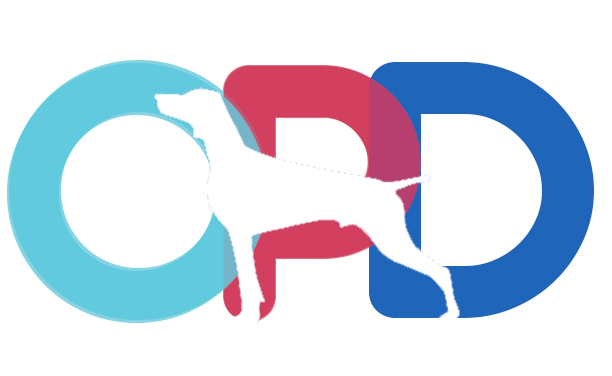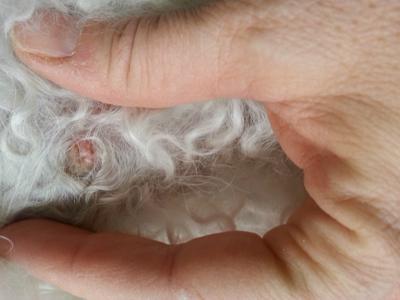by Lisa R.
(Valley Center, CA, USA)
I've noticed that my Bichon Frise has a few warts on him and one in particular, on his back, is asymmetrical -- pink on one side and somewhat grayish on the other (see photo). Also, it smells like pus. I have been checking it over time and it seems to be slightly bigger and changing in color.
I put some Neosporin on it today and it seemed to look better at the end of the day.
Last time I went to the vets, they wanted him to get a ton of shots and I don't want to do anything that isn't absolutely necessary. We live a very holistic lifestyle and I try to take a natural approach to healing. So if there is anything I can do to help him with a homeopathic or home remedy, please advise. If this looks serious, please let me know.
I got him 3 years ago. The rescue wasn't sure about his background, so they guessed that he was 5 at the time. My vet said he was 2 (and that was 2 years ago), so I'm guessing he's anywhere from 4-8 years old. He's very mellow in temperament, sleeps a lot, barks very little, very obedient -- so it makes me think he's on the older side.
I know he got shots when I adopted him, but I don't have the paperwork. I asked the rescue about what shots he may need yearly, and they said they don't recommend vaccines after the age of 5. So he hasn't gotten any shots in three years. He's an indoor-only dog, has never had fleas. Has no contact with other dogs and is always on a leash when he goes outside.
He only drinks filtered water and I buy a quality, protein-rich dog food (Acana Pork & Butternut Squash). I also give him beef bones.
Thank you.
Comments for Suspicious Wart on Bichon Frise | ||
| ||
Do you believe in holistic pet care? If so, please tell your friends about us, and visit our Organic Pet Digest social media accounts. Thank you for supporting our efforts!
Also see…
- Back to Dog Health Problems Symptoms / Dog Illness Signs Symptoms / Natural Dog Remedies
- Back to 10 Best Dog Food Options / Dog Food Ratings / Buy Dog Food Online
- Back to Conventional vs. Holistic Veterinarians
- Back to Organic Dog Supplies Online
- Back to Pet Friendly Airlines / Pet Friendly Travel
- Back to Organic Pet Digest Natural Dog Care Home Page



